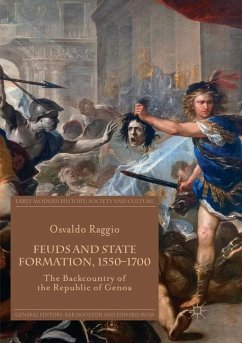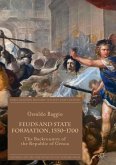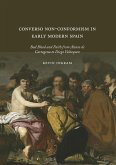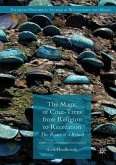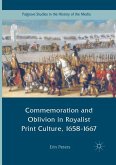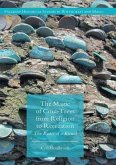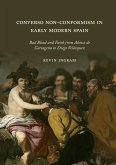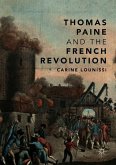This book re-evaluates the role of local agency and provides a new perspective to the political, social and cultural history of state formation, taking a microhistorical approach and through close analysis of archival sources between 1550 to 1700. The backcountry of the Republic of Genoa is a laboratory for gauging the weight and significance of two elements which, according to Charles Tilly and other scholars, have characterized the construction of the modern state: judicial administration and fiscal extraction. The instruments employed in this respect were arbitration and compensation. Interactions between center and periphery occurred within a stratified and discontinuous fabric of fluid jurisdictions and segmented residential topographies, which constituted spaces of mediation. Such spaces were generated by conflicts between kin groups (feuds and factional alignments) and managed both by Genoese officials and by local notables and notaries, who translated a whole set of localpractices into judicial procedures. This book offers a rich contextualization of material life, family relationships, economic activities, and power struggles in a corner of the Mediterranean world that was extremely important, but about which very little has been published in English.
"This book is a great addition to the Early Modern History series as well as to the growing body of micro-historical scholarship. Raggio, through a close study of the backcountry of the Republic of Genoa, offers a new perspective on how state formation is studied. ... This study is beneficial to those readers interested in the study of early modern cultural and social history, state formation, and local politics." (Renaissance and Reformation, Vol. 43 (1), 2020)

